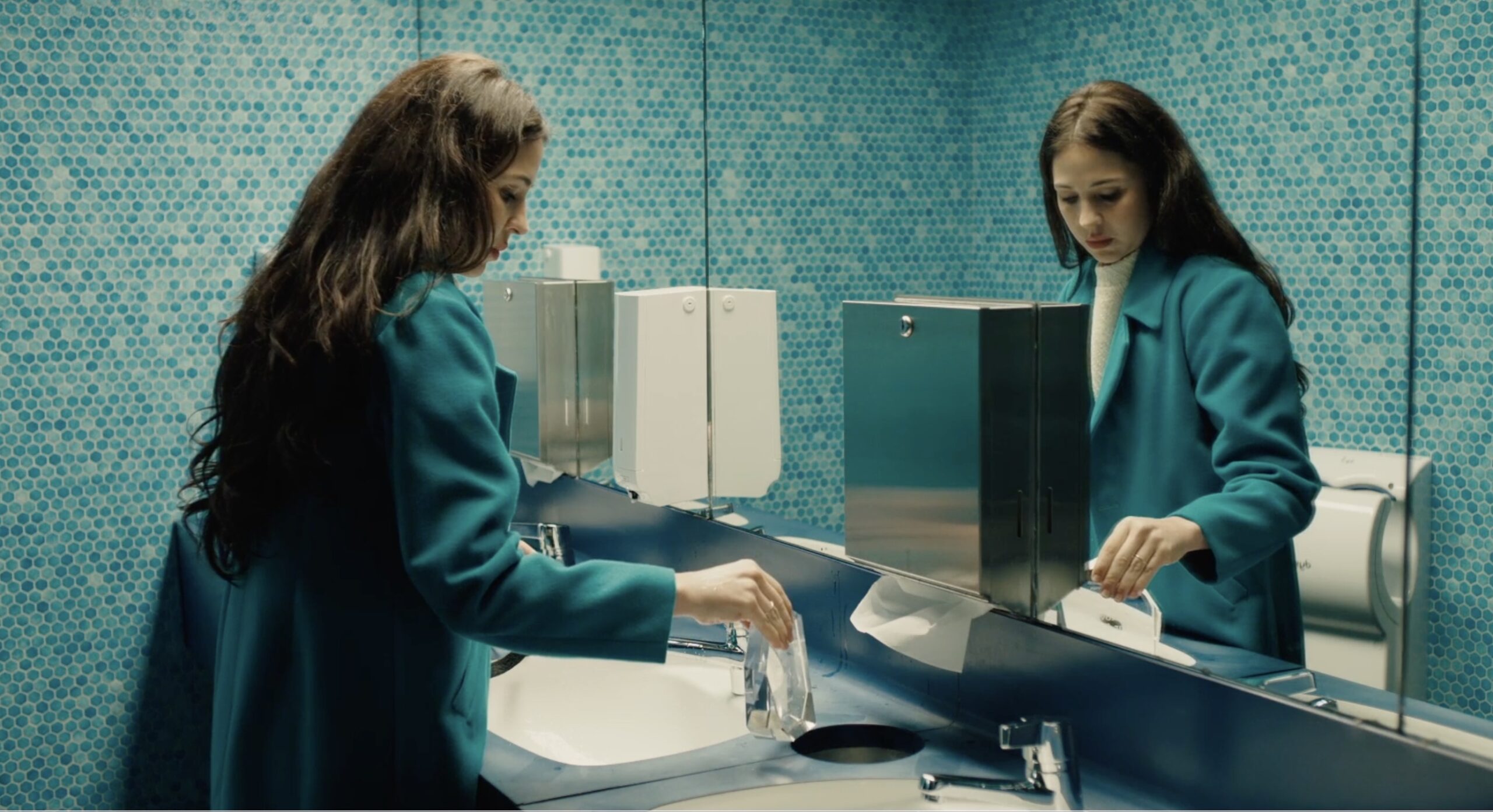The Currents
Las Corrientes
VERDICT: The tensions of motherhood overflow in the existential, visually expressive drama 'The Currents'.
Last year, two films studied women trying to shake off the yoke of conventional motherhood in bold ways. Amy Adams channeled her frustrations with the ferocity of a canine in Nightbitch, while Nicole Kidman found escape in a dom/sub affair with an intern in Babygirl. Now comes Isabel Aime Gonzalez Sola who finds her frustrations manifested through aquaphobia in The Currents. The new feature from Milagros Mumenthaler is frequently inventive, but unfortunately like the aforementioned pictures, it finds pat resolutions just at the moment a bolder swing is needed.
Lina (Sola), an Argentinian fashion designer, is in Switzerland to receive an award. But her face betrays anything but joy. After promptly dumping the statuette in the trash, she wanders the streets before launching herself off a bridge and into the water. She hauls herself out, cleans herself up, and returns home, but she can’t shake off the strange mood that enveloped her abroad. “It’s like you never came back,” her husband Pedro (Esteban Bigliardi) observes. Distant and prone to sleeplessness and panic attacks, Lina can’t seem to settle back into life with Pedro and their daughter Sofia (Emma Fayo Duarte). Even worse, she can’t stand running water; a shower is out of the question, and even strong pressure from the tap is unbearable.
The picture is at its most compelling when it ventures away from traditional narrative. Mumenthaler’s visual reference of Jenaro Pérez Villaamil’s painting “Explosión de una locomotora,” and the use of classic pieces including Morton Feldman’s “Something Wild In The City: Mary Ann’s Theme” and Gustav Holst’s “The Planets, Op. 32: II. Venus, the Bringer of Peace” bring an ethereal feel to the film. The opening, eight-minute sequence of The Currents documenting Lina in Switzerland are nearly dialogue-free, but the filmmaker truly offers something special in the third act. As Lina and Sofia watch the city from a spotlight atop their apartment building, we drift down into the city, dropped inside an imaginative snapshot of the lives of the film’s supporting characters. Moments that Lina — because she’s an artist and a mother; because of the choices she’s made and not made — will never know or experience. Because life only gives us the one path we tumble down. It’s a gorgeous, stirring sequence that evokes the visual language of early career work by F.W. Murnau or King Vidor.
It’s a disappointment, however, that following the buildup to the climax, The Currents tips its hand toward a more ordinary domestic drama and offers a rather anodyne explanation for Lina’s existential crisis. Mumenthaler’s screenplay works best when it lives and breathes in the ambiguities of Lina’s malaise and dissatisfaction, and how she balances it with her responsibilities as an entrepreneur, wife, and devoted mother. Splitting the difference between its more lyrical touches with more straightforward storytelling saps some of the power out of the film.
“I don’t know if they’re real or just an artifice to fill the void,” Lina’s colleague Julia (Ernestina Gatti) says about the tension of romantic gestures. It cuts to the heart of Lina’s own uncertainties about her life, and what she’s left behind and where she’s going. Even as Pedro longs for the woman he knew before she left for Switzerland, one thing is certain, that version of Lina is no more. As she pushes open the windows and listens to the rain at the film’s close, the realization that she can craft a new identity within a society that asks her to subsume to its demands, is just enough to keep her going.
Director: Milagros Mumenthaler
Screenplay: Milagros Mumenthaler
Cast: Isabel Aime Gonzalez Sola, Esteban Bigliardi, Emma Fayo Duarte, Ernestina Gatti
Producers: Eugenia Mumenthaler, Violeta Bava, Rosa Martínez Rivero, David Epiney
Cinematography: Gabriel Sandru
Production design: Aili Chen
Costume design: Simona Martinez
Editing: Gion-Reto Killias
Sound: Carlos Ibanez Diaz, Federico Esquerro, Denis Sechaud
Production companies: Alina Film (Switzerland), Ruda Cine (Argentina)
World sales: Luxbox
Venue: Toronto International Film Festival (Platform)
In Spanish
104 minutes


